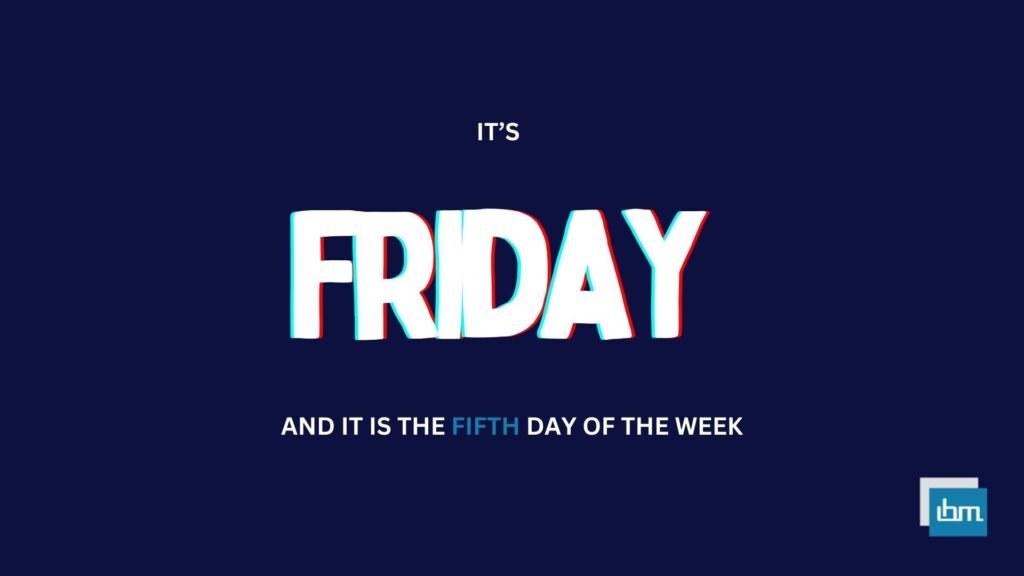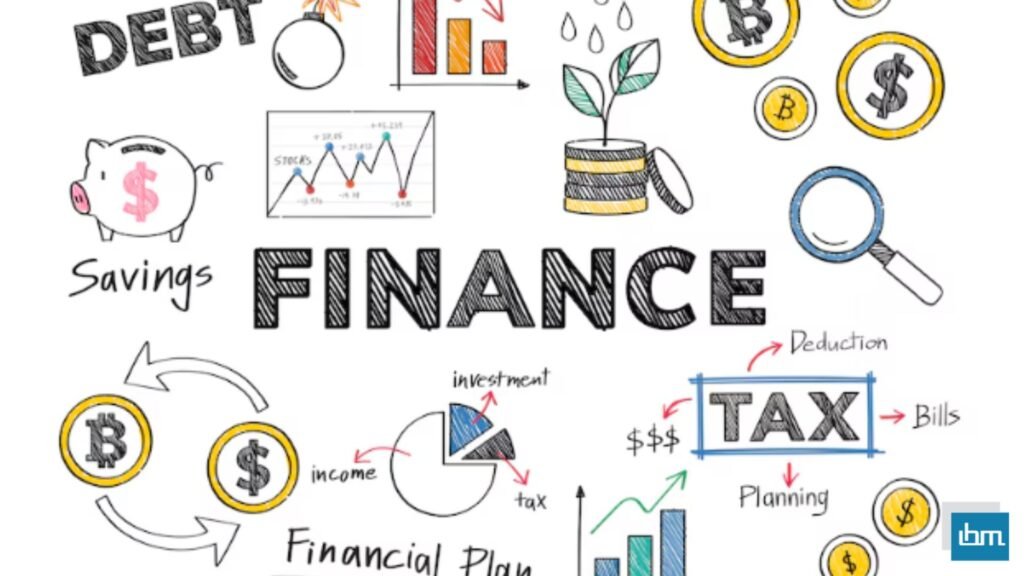Best Music Making Apps for Android. When evaluating music creation apps, we considered those offering a range of virtual instruments and effects, live audio support, version history, and collaboration tools. Apps with these characteristics make it simple for users to compose and share their music.
Several apps we reviewed provide similar fundamental features. Therefore, selecting the ideal music app relies on two main considerations: your budget and skill level. For instance, while Cubasis is our top recommendation for an all-encompassing music creation app, its $25 price tag plus in-app purchases may not suit novices venturing into music production. In this scenario, a cost-free app like GarageBand could be a better fit.
The majority of apps on our compilation allow users to link external instruments, synthesizers, and drum machines for music recording purposes. By employing this method, skilled musicians can fully exploit these apps’ capabilities with their equipment and avoid the necessity of additional virtual instrument purchases.
Music Making Apps Compared: Features & Benefits for 2025
| App Name | Key Features | Price/Trial | Ratings |
|---|---|---|---|
| Zenbeats By Roland | Multi-platform support, MIDI editing, loop-based music creation | Free trial available | 4.5/5 ⭐️⭐️⭐️⭐️⭐️ |
| Steinberg Cubasis | Professional mobile DAW features, unlimited audio/MIDI tracks, mixing tools | Paid, no free trial | 4.6/5 ⭐️⭐️⭐️⭐️⭐️ |
| Reason Compact | Compact version of Reason, synths and effects, intuitive interface | Free trial available | 4.0/5 ⭐️⭐️⭐️⭐️⭐️ |
| FL Studio Mobile | Full DAW capabilities, step sequencer, multi-track recording | $14.99, no free trial | 3.0/5 ⭐️⭐️⭐️ |
| BandLab | Social music platform, collaborative features, multi-track recording | Free | 4.7/5 ⭐️⭐️⭐️⭐️⭐️ |
| Caustic | Virtual rack-mount app, various synthesizers and samplers | Free | 4.2/5 ⭐️⭐️⭐️⭐️ |
| Korg iElectribe | Analog-style beat making, user-friendly interface | $19.99, no free trial | 4.3/5 ⭐️⭐️⭐️⭐️ |
| Soundtrap | Cloud-based collaboration, online studio access | Free trial available | 4.5/5 ⭐️⭐️⭐️⭐️ |
| Akai iMPC Pro 2 | MPC workflow on mobile, extensive sampling and editing features | $24.99, no free trial | 4.1/5 ⭐️⭐️⭐️⭐️ |
| Apple GarageBand | Multi-track recording, virtual instruments, beginner-friendly | Free | 4.8/5 ⭐️⭐️⭐️⭐️⭐️ |
This table summarizes the key details of each app mentioned in your query, including their features, pricing information with trial availability, and user ratings.
What is Best Music Making Apps for Android.
Here are my top picks for the Best Music Making Apps for Android Phones to use for your personal and professional needs. Best range of virtual instruments and effects, live audio support, version history, and collaboration tools.
1. Zenbeats By Roland.
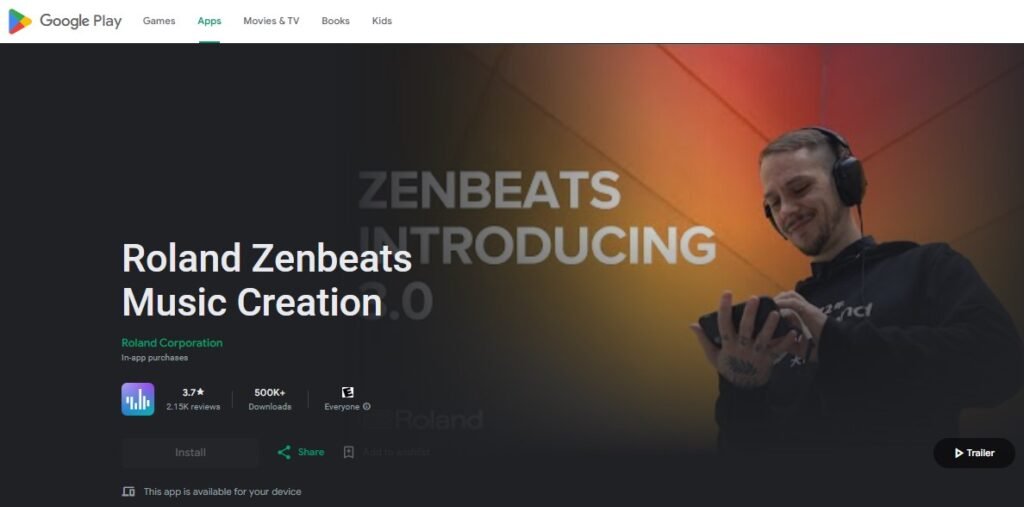
Zenbeats by Roland is a user-friendly digital audio workstation (DAW) designed for beginners, offering a wide range of features in its free version. The app includes various free instruments, such as the ZC1 synthesizer with 60 presets.
With SampleVerse, users can easily record and sample sounds from external sources. Beginners can take advantage of features like beat-sync and key-lock to effortlessly create beats and instrumentals, even without prior experience.
Zenbeats stands out by providing tutorials for beginners to help them navigate the software. For access to all additional features, including instruments, presets, loops, and sounds, users can subscribe to Roland Cloud for $2.99 per month or $29.99 per year.
Key Features:
- Access the free version of the product.
- Choose from different subscription plans: Core for $29.99/year, Pro for $99/year, or Ultimate for $199/year.
- Get support through email, phone, FAQs, and Knowledge Base.
Pros:
- Comprehensive free edition available.
- Easy-to-follow tutorials for beginners.
- Complete set of features at no cost.
Cons:
- Absence of collaboration software.
- Lack of team communication platforms.
- No tools for working together.
2. Steinberg Cubasis.
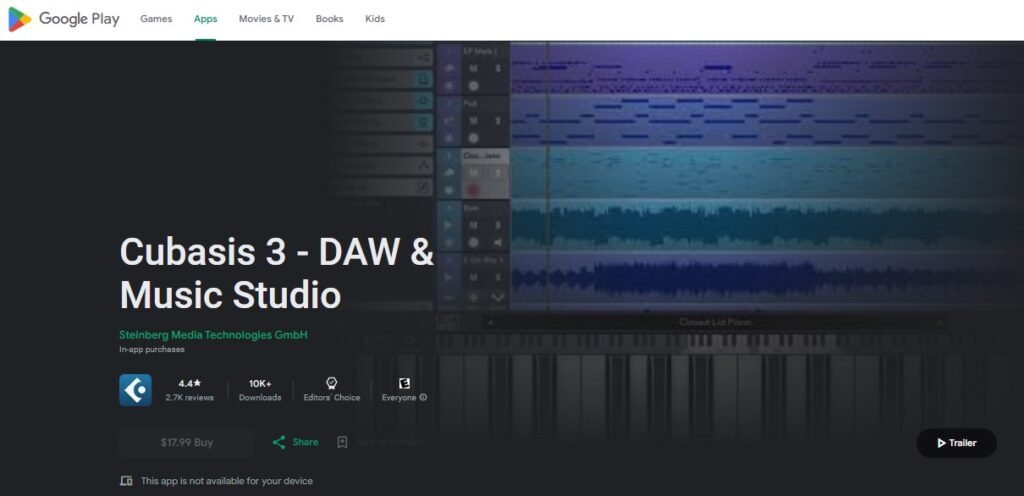
Cubasis by Steinberg stands out as the ultimate choice for a mobile music creation app. Unlike many other apps that are simply scaled-down versions of desktop software, Cubasis aims to provide a comprehensive music-making experience on your mobile device.
Although it doesn’t offer a free version, the purchase price grants you access to an extensive collection of effects, presets, and virtual instruments. Additionally, there’s a demo version called Cubasis LE, which allows you to test it out for 30 minutes.
With its full-screen mixing console, real-time time-stretching and pitch-shifting capabilities, a sampler for creating custom instruments, and MIDI support, Cubasis truly excels. Moreover, it offers version history features, enabling users to revert to previous versions of their songs and rectify any mistakes made.
Key Features:
- Cubasis for Android is priced at $29.99, while Cubasis for iOS costs $49.44.
- Support options include Email, Chat, Phone, Forums, and Help Center.
- Unfortunately, there is no free version available.
Pros:
- Extensive collection of pre-configured settings and filters.
- Integrated sampler for added functionality.
- Ability to access previous versions of the software.
Cons:
- There is no version available for free.
- The free version is not offered.
- A free version is not provided.
3. Reason Compact.

Download: iOS
Reason Compact is an ideal music creation tool for both novices and seasoned producers who are already familiar with its desktop version. The app boasts user-friendly touch controls, ensuring a smooth music-making experience for beginners.
New users can kickstart their journey by customizing demo songs based on different genres. Reason Compact seamlessly integrates with other music apps via Audiobus, allowing desktop Reason users to transfer tracks for further enhancements.
With a free download, users gain access to three instruments, 16 drum kits, and the Europa synthesizer. For more features and instruments, in-app purchases are required.
Key Features:
- Access the free version of the app.
- Make in-app purchases ranging from $0.99 to $9.99 per item.
- Get support through chat, Help Center, forum, or feedback form.
Pros:
- Features suitable for beginners.
- Integration with various music apps.
- Works well with Reason on desktop.
Cons:
- Includes only three complimentary instruments.
- Provides just three instruments at no cost.
- Offers a limited selection of three free instruments.
4. Fl Studio Mobile.
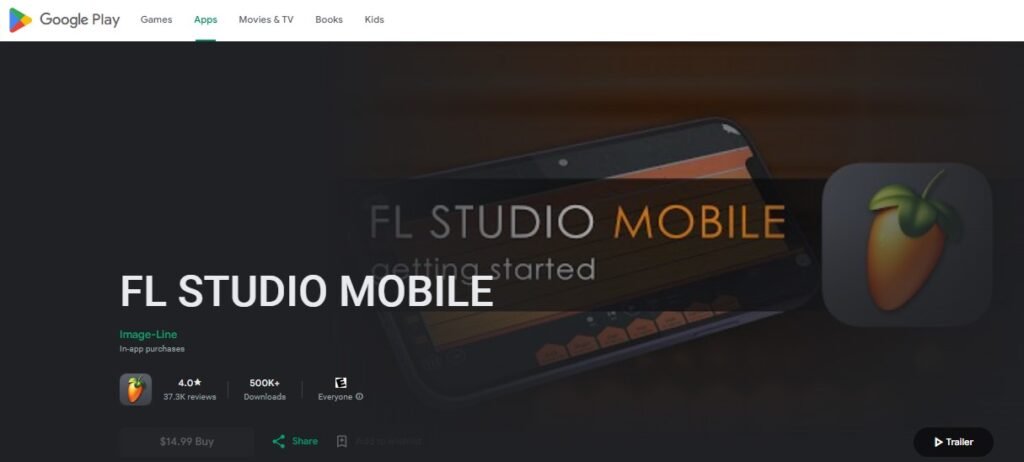
FL Studio Mobile, like Reason Compact, is a streamlined version of its popular desktop counterpart. The app costs $13.99 and provides all the necessary tools for creating top-notch instrumentals, such as multi-track audio, MIDI support, various virtual instruments and presets, 16 effects, and a drum sampler.
Users can access training videos to learn how to navigate the interface, and tracks created on the mobile version can be easily transferred to the desktop version for more advanced features. Additionally, FL Studio Mobile stands out by supporting WAV and FLAC files for saving and exporting high-quality audio files.
Key Features:
- No free version offered.
- Multi-track audio recording and editing.
- High-quality virtual instruments and synthesizers.
- MIDI controller support and MIDI file import/export.
- Effects and mixing tools for professional-quality sound.
- In-app purchases range from $0.99 to $13.99 per item.
- Support options include Email, Forums, FAQs, Knowledge Base, Manuals, and Tutorials.
Pros:
- Compatible with WAV and FLAC file formats.
- User-friendly interface with intuitive controls.
- Regular updates and improvements based on user feedback.
- Extensive collection of instruments and presets available.
- Supports a wide variety of audio files, including WAV and FLAC.
Cons:
- Paid app with additional in-app purchases for premium content.
- Advanced features may require a learning curve for beginners.
- No costless version offered.
5. Bandlab.

BandLab is a music creation app that promotes collaboration, offering a multi-track mix editor for recording, editing, and remixing tracks. With 10,000 royalty-free loops, 300+ instruments, a sampler, automatic pitch correction, 180+ presets, and an automated mastering tool,
it stands out from other music apps. Users can connect with artists through Creator Connect, with projects supporting up to 50 collaborators. Publish your tracks to your profile for visibility after completion.
Key Features:
- Access the free version now.
- No in-app purchases required.
- Get support through email or Help Center.
Pros:
- Free of charge for all users.
- Excellent tools for teamwork.
- Extensive collection of loops and instruments.
Cons:
- Limited choices for mastering available.
- A restricted range of mastering options.
- Few mastering alternatives to choose from.
6. Caustic.
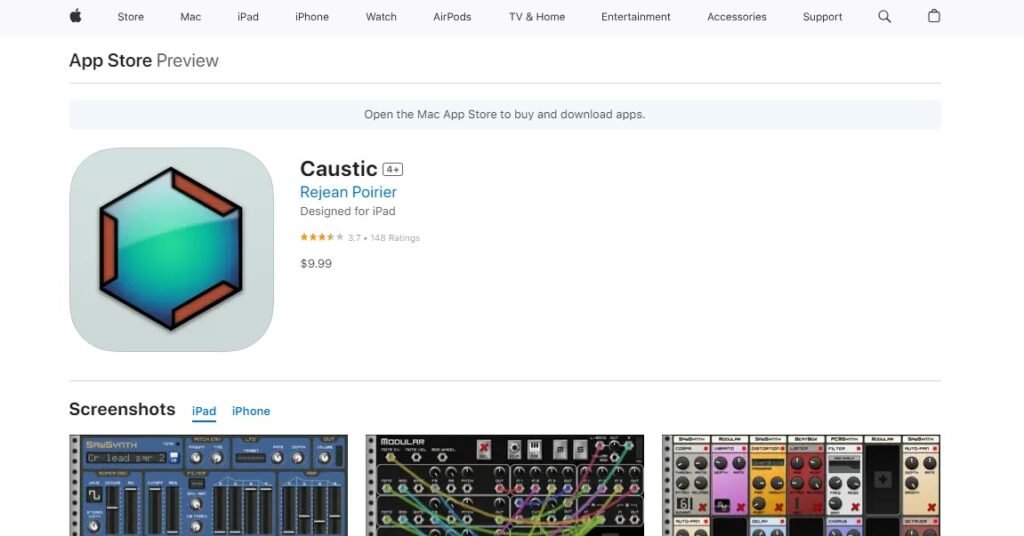
Most apps on our list serve as mobile DAWs, but Caustic stands out as a rack-mounted synthesizer emulator. Users can create custom synthesizer racks with 14 machines and choose from 20 effects to add to each machine. Caustic also offers a mixer desk, mastering console, and song sequencer.
It is compatible with Audiobus for connecting with other music apps, and users can upload their own WAV files for use with the synthesizers and effects. Caustic is free on desktop and Android, but costs $9.99 on iOS.
Key Features:
- Access the free version.
- No in-app purchases required.
- Get support through email, forum, or contact form.
Pros:
- Desktop version of the virtual synthesizer rack available for free.
- Compatibility with WAV files for enhanced audio support.
- A different way to phrase the text: Enjoy the benefits of a virtual synthesizer rack with a complimentary desktop version, offering seamless integration with WAV files.
Cons:
- Available exclusively on Android for free.
- Free to download and use on Android devices.
- Accessible at no cost on Android platforms.
7. Korg Ielectribe.

Download: iOS
The Korg iElectribe is a digital rendition of the classic Electribe rhythm machine. With 64 presets and 32 templates, users can dive right in or start from scratch to create their own tracks. Offering over 300 rhythm patterns across various genres like electro, house, techno, and more, the app also provides a selection of effects to enhance your music.
From delays to reverbs, users can experiment with different effects on each track. Once your beats are complete, you can easily export them to a DAW for further editing.
Key Features:
- No free version offered.
- No in-app purchases available.
- Support provided through Help Center and FAQs.
Pros:
- Extensive collection of presets and templates available.
- Access to 300 rhythm patterns.
- Wide variety of presets and templates to choose from.
Cons:
- Limited to paid version only.
- Requires purchase for full access.
- No complimentary option available.
8. Soundtrap.
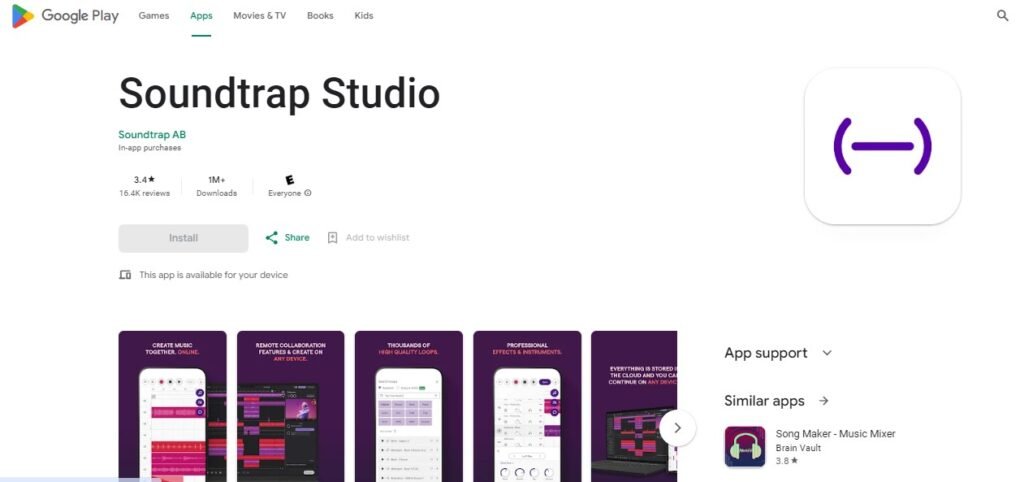
Soundtrap, created by Spotify, is a mobile recording studio that allows for collaboration. It offers a wide range of software instruments and high-quality loops. What sets Soundtrap apart from other music-making apps is its real-time collaboration features, real-time audio manipulation, extensive library of effects, and more.
Not only does Soundtrap excel in music recording, but it also emphasizes podcast recording, making it the only app on our list to do so. Users can join sessions to record and edit podcasts together using their mobile devices. With features like AutoTune, automated mixing and mastering, and presets, you can easily create and share top-notch tracks.
Key Features:
- Access the free version of the service.
- Choose from different subscription plans: Music Makers Premium, Music Makers Supreme, Storytellers, or Complete.
- Get support through email, Help Center, or ticket system.
Pros:
- Recording podcasts.
- Features for collaboration.
- Numerous loops available.
Cons:
- Incompatible with plugins developed by third parties.
- Does not support third-party plugins.
- Not designed to work with plugins from external developers.
9. Akai Impc Pro 2.

Download: iOS
The Akai iMPC Pro 2 is a versatile tool that combines a sampler, beatmaker, and song creation capabilities. With a wide range of built-in sounds and the option to download additional sound packs for free, users have plenty of options to create unique tracks.
One standout feature is the ability to record audio tracks using external microphones and manipulate them in real-time. Additionally, users can easily sample sounds from music apps like Spotify and edit them using the ‘chop-shop’ feature.
To help users make the most of the app, purchasing it grants access to iMPC University, a comprehensive tutorial series on song creation.
Key Features:
- No free version offered.
- No in-app purchases available.
- Support provided through phone, Knowledge Base, and Contact Form.
Pros:
- Extensive collection of pre-installed audio samples.
- Access to five complimentary sound packs.
- Exceptional sampling features for enhanced audio production.
Cons:
- No complimentary version available.
- No costless version offered.
- No trial version provided.
10. Apple Garageband.
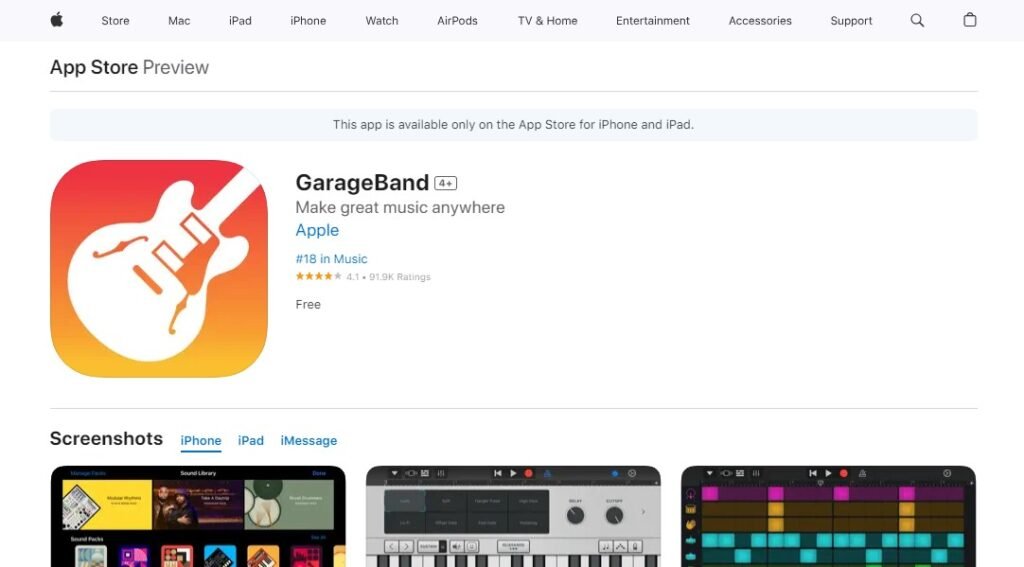
Download: iOS
GarageBand, Apple’s music creation app, is specifically designed for iPhone, iPad, and Mac. Although it may not be the most advanced mobile DAW available, it offers a wide range of instruments, sounds, and presets, and it is completely free to download and use.
With GarageBand, you can take advantage of instrument lessons and free artist lessons to learn new skills and production techniques, making it ideal for beginners. One of its standout features is the ‘Drummer’ feature, which allows users to add a virtual drummer to their tracks, automatically playing realistic drum patterns alongside their music.
Additionally, GarageBand supports third-party plugins and live audio recording. The app also includes live loops and smart instruments that play along with you. Sharing your finished tracks on platforms like YouTube, Facebook, and SoundCloud is also made easy with GarageBand.
Key Features:
- Free version accessible.
- Built-in audio effects and mixing tools.
- iCloud integration for seamless project syncing across devices.
- No in-app purchases required.
- Support provided by Apple Support, Forum, and User Guides.
Pros:
- Free to download and use for Apple device users.
- Beginner-friendly interface with guided tutorials and lessons.
- Professional-grade sound quality and performance.
- Online percussionist.
- Complimentary music tutorials.
Cons:
- Absence of a mixing console.
- Limited availability for Android devices (not officially supported).
- Compatibility issues may arise when using third-party hardware or software.
- Lack of a mixing board.
- Not using a mixing desk.
How to Choose the Best Music Making App for Your Needs
Selecting the best music-making app depends on your specific needs, whether you’re a beginner or an experienced musician. First, consider your level of experience. Beginners may prefer apps with simple interfaces, tutorials, and basic features, such as GarageBand or BandLab. These apps allow for quick learning while offering enough tools to explore creativity.
For more advanced users, look for apps that provide extensive customization and professional-grade features, like FL Studio Mobile or Ableton Live. These apps offer a wider range of instruments, sound editing capabilities, and complex mixing options that allow you to create professional-level tracks.
Next, think about compatibility. Ensure the app works on your device, whether it’s iOS, Android, or desktop, and that it supports your preferred file formats. You should also check for integrations with other software or hardware, such as MIDI controllers, if necessary.
Additionally, consider the cost. Many apps offer free versions with limited features, while premium versions unlock more advanced tools. Choose an app that fits your budget while providing the features you need for your musical journey. Lastly, read reviews and test out free trials to ensure the app’s usability aligns with your workflow.
Benefits of Using Music Making App
Music-making apps offer a range of benefits, whether you’re a hobbyist or a professional. One key advantage is convenience. With an app, you can create music anytime, anywhere, without needing a full-fledged studio setup. These apps give you access to a variety of instruments, sounds, and features right on your smartphone or tablet, making music production more accessible.
Another significant benefit is cost-effectiveness. Traditional music production setups often require expensive software, instruments, and studio equipment. However, many music-making apps offer powerful features at a fraction of the cost, allowing both beginners and professionals to produce high-quality tracks on a budget.
Flexibility is another perk. Music apps allow for easy experimentation with different genres and styles. You can quickly change sounds, effects, and settings, which helps to fine-tune your compositions. Plus, apps often come with recording, editing, and mixing tools, meaning you can produce a polished track without needing additional software or hardware.
Finally, music apps foster creativity by offering a user-friendly interface and quick access to a wide range of features. Whether you’re layering beats or adding instruments, these apps are designed to support creative freedom while keeping production simple and intuitive.
Tips To Get The Most Out Of Your Music Making App
To maximize the potential of your music-making app, start by getting familiar with its features. Spend some time exploring all the available tools and functions, such as sound libraries, mixing options, and effects. This helps you understand the app’s capabilities and limits, making your workflow smoother.
Next, utilize tutorials and online resources. Many apps provide in-app guides or community forums where you can learn tips and tricks. These resources can accelerate your learning curve, allowing you to experiment with more advanced techniques and ideas.
To improve the quality of your tracks, invest time in sound selection and arrangement. Start with a strong foundation by choosing high-quality samples or instruments that suit your music style. Proper layering and arrangement can elevate your composition, making it more dynamic and engaging.
Additionally, take advantage of any editing features the app offers. Fine-tuning your track through EQ adjustments, reverb, or automation can add depth and clarity to your sound. Finally, always save and back up your work regularly, especially if you’re experimenting with complex arrangements.
By mastering your app’s features, continuously learning, and being patient, you’ll be able to create music that truly reflects your vision.
FAQs About Music Making Apps for Android in 2025
BandLab and Music Maker JAM are among the top free music-making apps for Android, offering user-friendly interfaces and a variety of features for both beginners and experienced users.
Yes, you can produce music with your phone using various apps like BandLab, Music Maker JAM, and Zentracker, which provide tools for recording, editing, and mixing music directly on your device.
Yes, BandLab is completely free to use and offers a wide range of features including collaboration tools, virtual instruments, and social sharing options.
To make music on Android apps, download a suitable app like BandLab or Music Maker JAM, explore the available sounds and loops, record your audio or MIDI tracks, and then mix and edit your project using the app’s tools.
The best app for making music depends on your needs; BandLab is great for collaboration and features, while Music Maker JAM is ideal for beginners looking to create beats easily.
Music Maker JAM is a popular beat-making app that allows users to create or remix music tracks using loops from various genres. Its intuitive interface makes it accessible for beginners.
BandLab is often considered one of the best music apps for Android due to its comprehensive features that support both casual users and professional musicians.
To create your own music, choose a music-making app like BandLab or Music Maker JAM, select sounds or loops, record your vocals or instruments, and arrange them into a complete track using the app’s editing tools.
Yes, while there are many free options like BandLab and Music Maker JAM, paid apps such as FL Studio Mobile and Cubasis 3 offer more advanced features suitable for professional music production.
Conclusion
Music-making apps for Android have revolutionized how aspiring musicians create and produce music on the go. With a plethora of applications available, users can easily access professional-grade tools right from their smartphones. These apps combine user-friendly interfaces with powerful features, making music creation accessible to everyone, regardless of skill level.
Among the top contenders is FL Studio Mobile, known for its robust capabilities that allow users to create multitrack projects. It includes a variety of instruments and effects, making it a favorite for both beginners and experienced producers alike. Another popular choice is BandLab, which not only offers a full-fledged digital audio workstation but also fosters a community where musicians can collaborate and share their work.
KORG Kaossilator stands out for its unique touch-based interface, enabling users to create music through intuitive gestures. This app is perfect for those looking to experiment with electronic sounds and loops. Similarly, Music Maker JAM provides an extensive library of sound packs and loops, making it easy for users to remix and produce tracks in various genres.
Lastly, Roland Zenbeats offers a blend of modern and classic sounds, catering to diverse musical tastes. Its advanced editing features make it a strong contender in the mobile music-making landscape. Overall, these apps empower users to unleash their creativity and produce high-quality music anytime, anywhere.





